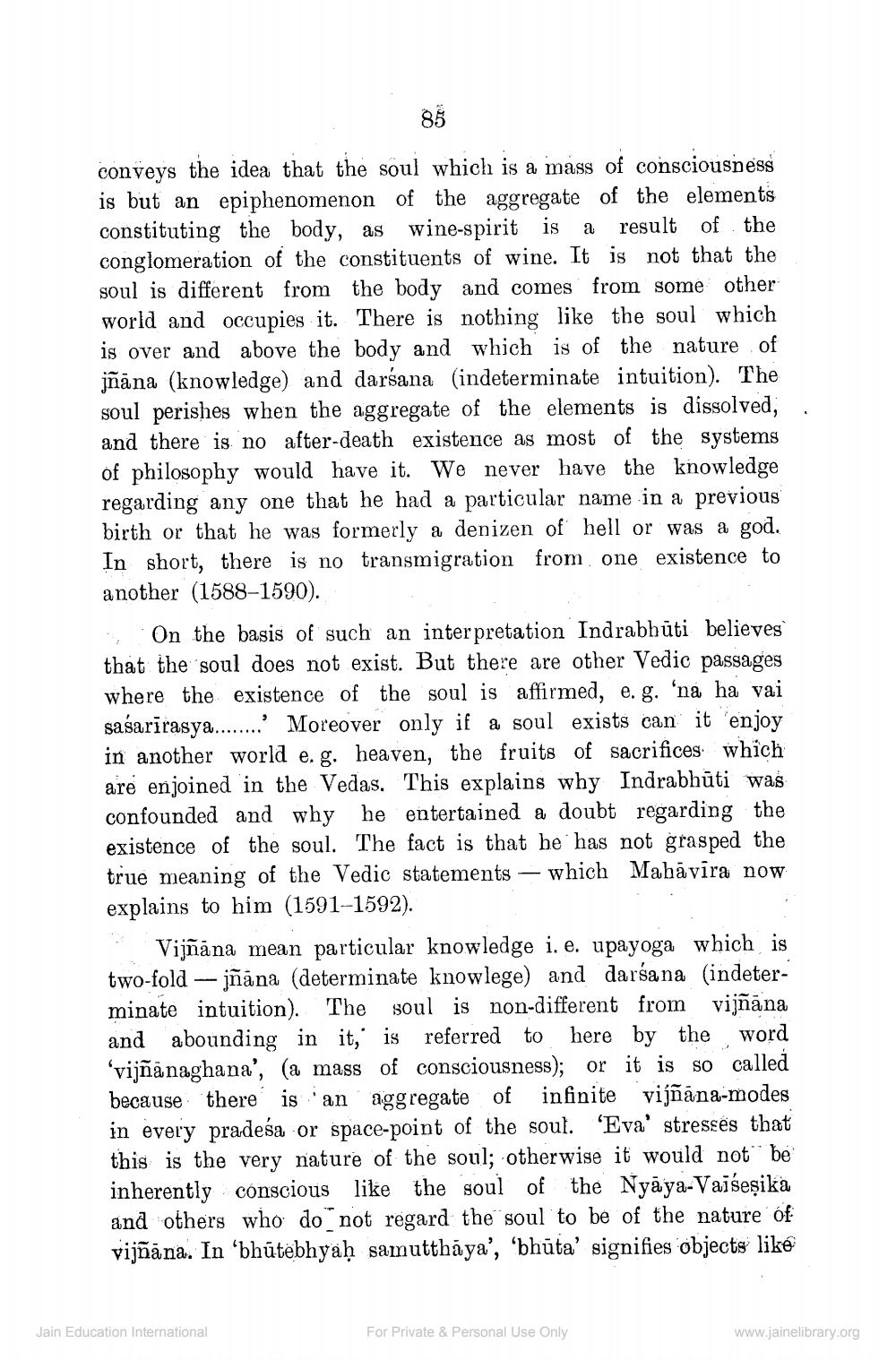________________
85
conveys the idea that the soul which is a mass of consciousness is but an epiphenomenon of the aggregate of the elements constituting the body, as wine-spirit is a result of the conglomeration of the constituents of wine. It is not that the soul is different from the body and comes from some other world and occupies it. There is nothing like the soul which is over and above the body and which is of the nature of jñāna (knowledge) and darśana (indeterminate intuition). The soul perishes when the aggregate of the elements is dissolved, and there is no after-death existence as most of the systems of philosophy would have it. We never have the knowledge regarding any one that he had a particular name in a previous birth or that he was formerly a denizen of hell or was a god. In short, there is no transmigration from one existence to another (1588–1590).
On the basis of such an interpretation Indrabhūti believes that the soul does not exist. But there are other Vedic passages where the existence of the soul is affirmed, e. g. 'na ha vai saśarīrasya....... Moreover only if a soul exists can it enjoy in another world e. g. heaven, the fruits of sacrifices which are enjoined in the Vedas. This explains why Indrabhūti was confounded and why he entertained a doubt regarding the existence of the soul. The fact is that he has not grasped the true meaning of the Vedic statements - which Mahāvīra now explains to him (1591-1592).
Vijñāna mean particular knowledge i. e. upayoga which is two-fold — jñāna (determinate knowlege) and darśana (indeterminate intuition). The soul is non-different from vijñāna and abounding in it, is referred to here by the word 'vijñā naghana', (a mass of consciousness); or it is so called because there is an aggregate of infinite vijñāna-modes in every pradeśa or space-point of the soul. 'Eva' stresses that this is the very nature of the soul; otherwise it would not be inherently conscious like the soul of the Nyāya-Vaišeşika and others who do not regard the soul to be of the nature of vijñāna. In 'bhūtebhyaḥ samutthaya', 'bhūta' signifies objects like
Jain Education International
For Private & Personal Use Only
www.jainelibrary.org




